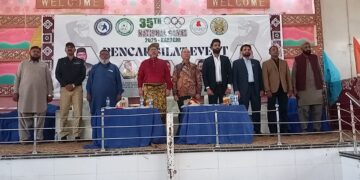President Pakistan Businessmen and Intellectuals Forum (PBIF), President All Karachi Industrial Alliance (AKIA), Senior Vice Chairman of the Businessmen Panel of FPCCI and Former Provincial Minister, Mian Zahid Hussain on Monday lauded Prime Minister Imran Khan for averting a nationwide crisis by reversing the decision to increase power tariff for the export sector.
After the government decision to keep electricity prices intact for the rest of the current fiscal, the textile sector has reviewed the decision to close their industrial units across the country and has started the business with peace of mind albeit for a few months, he said.
Mian Zahid Hussain said that the power tariff will now be increased by the beginning of new fiscal which should be reconsidered as it will put on hold the plan of the textile industry to invest billions of dollars in the industrial sector due to uncertainty.
Talking to the business community, the veteran business leader said that economic managers should analyse the situation carefully and decide whether they want to earn extra rupees by an increase in power tariff or want to earn foreign exchange.
The Former Minister noted that industrial sector is consuming 25 percent of the total electricity while export sector is roughly consuming almost one-fourth of this which is almost 6.5 billion units.
The government has decided to cap power subsidy to Rs20 billion by the next fiscal which will be insufficient for the export sector as it will have to brace for al least three cents hike in power cost which will erode its competitiveness in international market.
Mian Zahid Hussain noted that once vibrant cement sector is also facing problems which have resulted in heavy losses. The price of coal has come down by 32 percent in the international market which is a piece of good news for the cement sector.
Small cement units have to struggle more as compared to large units in the current economic scenario which is far from satisfactory, he said.
However, he said, this sector is still grappling with currency devaluation, high input cost, costly paper and packaging material etc. which should be considered by the government.




















